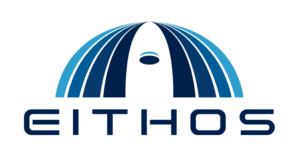
The NOTIONES Project is a sibling of the EITHOS Project. While EITHOS focuses on raising awareness about identity theft, NOTIONES aims to bridge the gap between research, industry, and the intelligence community. Recently, NOTIONES published an article on Open-Source Intelligence, a topic that piqued our interest. Given its relevance to privacy and data, we decided to explore it further and share our insights with our community.
What is an Open-Source Intelligence (OSINT)?
In a complex digital world, we need effective tools to assess threats, make decisions, and answer specific questions. This is the role of OSINT, which stands for Open-Source Intelligence. Effectively, the role of OSINT is to gather data related to a specific search. This is not a new concept, for example, during the Second World War, intelligence agencies used collecting information from magazines, newspapers, and radio broadcasts.
Today, access to open-source information has increased due to the vast amount of data available on the internet. Hence, currently, Open-Source Intelligence (OSINT) can gather information from various sources that are integral to our lives, including:
- Internet search engines
- Print and online news media
- Social media accounts
- Online forums, blogs, and Internet Relay Chat (IRC)
| Lighting Glossary: IRC existed before social media became popular. << IRC is a service that allows people to chat with each other online. It operates on a client/server model where individuals use a client program to connect to an IRC server>>. Source : IRC Definition – What is IRC? (techterms.com) |
- The Dark Web
- Online directories
- Public records
- Government records
- Academic research
- Technical data
While OSINT offers valuable insights from data, balancing its ethical and legal aspects presents a series of challenges that must be carefully considered.
Striking a balance between the legal and ethical aspects of OSINT is crucial
In principle, just because data is public doesn’t mean that sharing it is always ethical. This consideration leads us to examine two main impacts of OSINT: privacy rights and societal implications.
Impact on Privacy Rights
OSINT can risk exposing personal information that individuals may not have intended to share publicly.
Societal Implications
The collection of data can lead to profiling, which raises concerns about surveillance and related issues.
Additionally, the challenge of information overload complicates the task of finding relevant and high-quality data amidst the vast amount of information available. This issue affects security investigations, such as fraud detection, and journalistic integrity due to the sheer volume of data and the high level of disinformation.
Conclusions
OSINT, or Open-Source Intelligence, involves gathering data and providing insights related to specific research topics.
Although it can be challenging to delineate the boundaries between legal and ethical issues, it is clear that maintaining ethical principles is essential for upholding professional integrity and ensuring the long-term legitimacy and societal benefit of OSINT practices. Legal frameworks also play a crucial role in protecting the privacy of individuals and society as a whole.
Four tips for respecting privacy and adhering to the legal framework
- Instead of simply monitoring social media accounts, OSINT practitioners should ensure they have legal authorization or obtain consent from individuals before accessing their information.
- Practitioners should rely only on data sources that adhere to ethical data collection practices.
- OSINT practitioners should also collaborate with law enforcement agencies or other trusted organizations to responsibly share information and mitigate potential harm.
- Finally, practitioners should maintain a high level of sensitivity and respect toward the individuals they are investigating, ensuring the careful handling and protection of their data
Sources & related links
Scott Bolen, The Ethical Considerations of OSINT: Privacy vs. Information Gathering, Medium 4th January 2024
Gregg Lindemulder, Amber Forrest, What is open-source intelligence (OSINT)? , IBM, 8th Avril 2024
Related Projects
NOTIONES Project is a network designed to connect researchers and industries with the intelligence community. It facilitates the exchange of information on new and emerging technologies while providing solution providers with valuable insights into the needs and requirements of practitioners. Additionally, Notiones produces periodic reports that include technological roadmaps, priorities, and recommendations for future research and development activities.
FERMI Project is a collaboration of 17 leading organizations in criminology, social sciences, public policy, technological development, innovation management, and law enforcement. Together, they work as a fake news mitigator, developing a framework to detect and monitor the spread of disinformation and fake news (D&FN) across different locations and segments of society. Their goal is to implement relevant security countermeasures to combat this issue.
